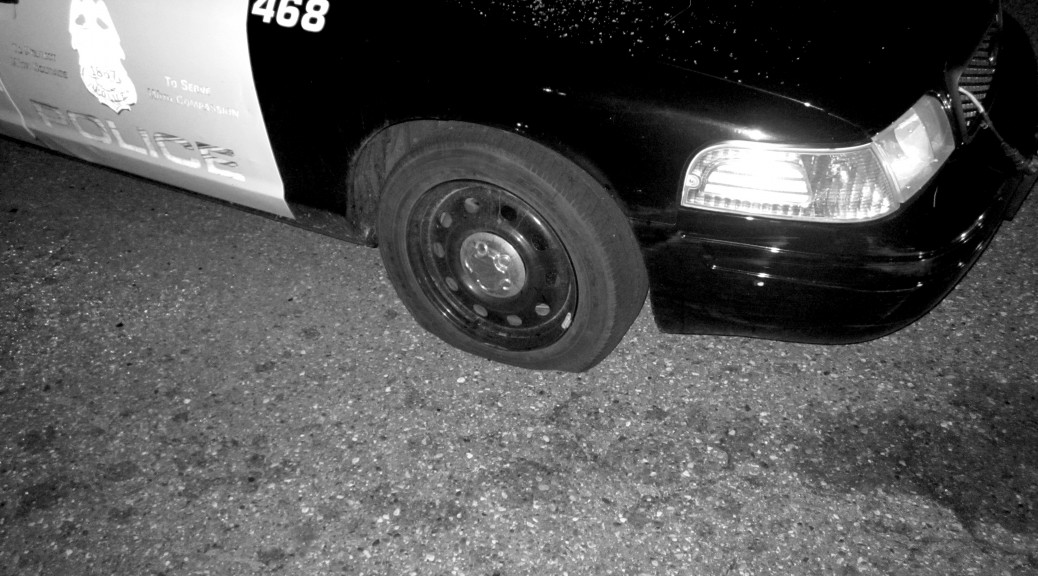By now everyone is familiar with some version of this story. Jamar Clark was shot by the police on the morning of November 15th and died a few days later in the hospital. What occurred leading up the shooting is something else entirely and will not be explored here. Most are likely familiar with what followed: an occupation of the 4th Precinct’s lawn, a night of rioting, a white supremacist shooting, and more. Eventually the cold set in and the occupation was cleared, leaving many waiting to hear whether or not the officers would be indicted for their actions.
Participation in these actions was diverse; a variety of perspectives came together in one place. However, the most dominant voices were those calling for the officers to be prosecuted. Smaller demonstrations centered around this demand took place regularly after the removal of the encampment.
On March 30th it was announced that the officers who had killed Jamar Clark would not be charged. This sparked a day of protests across the city. Remarkably, the tone of these demonstrations had changed very little, as the crowds continued to chant “prosecute the police!” On June 1st, the FBI announced they would not indict the officers either. Protests have taken place since then and have remained faithful to this slogan, demanding what has already been unquestionably denied.
This brings certain tensions to the forefront: we cannot appeal to one part of the system for justice against another part; it is all the same system. Putting the police on trial and even behind bars will never dismantle the entire structure of cops, courts, and prisons—in fact, one might argue it actually supports that structure. Yet protesters continue to demand such a thing.
It is important to remember that from the beginning the call to “prosecute the police” did not speak for everyone. Especially within the first few days following the shooting, the chant was commonly interrupted with “fuck the police.” From this perspective, the demand for prosecution is less about actually prosecuting the officers and more about bringing into the political system those who previously existed outside of it. To say “fuck the police” is to
say to the government: ‘there is nothing you can do for us.’ By channeling this sentiment into a political demand (for prosecution, something the government can do) it lowers the possibility of destabilizing unrest, the likes of which was seen on the night of November 18th. If people believe that there is something the government can do for them they can easily be bought off with a small carrot, and ultimately, swept under the rug while self-appointed leaders consolidate their power.
This would explain why there are still protests for prosecution despite its impossibility. People are still angry, as are we, that police officers get away with murder. But this is nothing new. The state has always had a monopoly on violence and the police are the armed guards of the social order. Let us not forgot that in this country the police evolved from slave patrols. In many of these past instances, people have recognized that there is no justice to be found from the same system that deals us injustice—and so they burnt everything down. The fires of Baltimore and Ferguson still burn fresh in our memories, but we can’t forget Los Angeles in 1992 or the countless revolts of the 60’s and 70’s.
In these cities, however, police continue to kill with impunity. So the answer is not simply to burn everything down, although perhaps that is a good start. We must simultaneously destroy the structures that dominate and oppress us (such as the police) as well as build our communities so that we don’t need things like police anymore. It is important in this process that we do not replicate what the police do, but instead reevaluate our understandings of law, crime, justice, and pretty much everything. A small glimpse of this world could be seen during the 4th precinct occupation in November, when everyone was given food and shelter for a short time. It was far from perfect, but it is crucial to know that these are not fantasies in our heads but realities that we create.
For a world without police!

